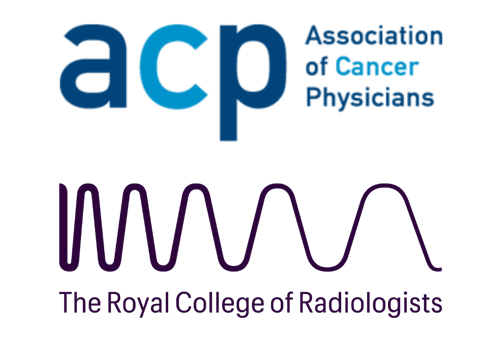RCR-ACP recommendations for oncology teams when blood stocks are low
Background
From time to time the NHS Blood and Transplant Service issues alerts about low levels of blood stocks and asks hospitals to restrict the use of blood, to ensure that patients who need blood can receive a transfusion. Current information is available on the NHS Blood and Transplant website.
The Association of Cancer Physicians (ACP) and The Royal College of Radiologists (RCR) have issued this statement with recommendations for oncology teams in such circumstances. This should be read in conjunction with individual hospitals’ Emergency Blood Management Arrangements.

Recommendations
- Use the NICE blood transfusion guideline (2015) to make decisions about transfusions. In particular:
- Use a restrictive red blood cell transfusion threshold unless the patient has a major haemorrhage or acute coronary syndrome.
- Consider a threshold of 70 g/litre and a haemoglobin concentration target of 70-90 g/litre after transfusion.
- Consider single-unit red blood cell transfusions for adults who do not have active bleeding.
- Assume an increment of 10g/litre per unit in a 70 kg patient - expect a higher rise in patients of lower body weight.
- After each single-unit red blood cell transfusion, clinically reassess and check haemoglobin levels, and give further transfusions if needed.
- When a red blood cell transfusion would normally be considered to enable systemic anti-cancer therapy (SACT) to proceed safely:
- Consider delaying SACT to allow the haemoglobin level to rise rather than using a transfusion when SACT is given with palliative intent.
- Consider alternatives to red blood cell transfusion - e.g. oral or intravenous iron or erythropoiesis-stimulating agents according to local protocol.
- Consider using alternative, less myelosuppressive SACT regimens.
- Review local protocols for red blood cell transfusions if they are used to maintain haemoglobin levels above a target level during curative radiotherapy (e.g. in cervical or head and neck cancers). The evidence that transfusion improves cancer outcomes in this situation is of poor quality.
- Consider prescribing tranexamic acid for patients with anaemia secondary to chronic blood loss from a locally advanced cancer.
- Discuss the need for transfusion with a senior decision-maker (e.g. responsible consultant) while blood stocks remain low unless there is a clinical emergency.
Useful links
National Blood Transfusion Committee [last checked: 15 August 2024]
Management of anaemia and iron deficiency in patients with cancer: ESMO Clinical Practice Guidelines Annals of Oncology 29 (Supplement 4): iv96-iv110, 2018. [last checked: 15 August 2024]
Erythropoiesis-stimulating agents (epoetin and darbepoetin) for treating anaemia in people with cancer having chemotherapy NICE Technology Appraisal guidance (TA323). Nov 2014 [last checked: 15 August 2024]
|
Professor Andrew Wardley |
Dr Tom Roques |
|---|